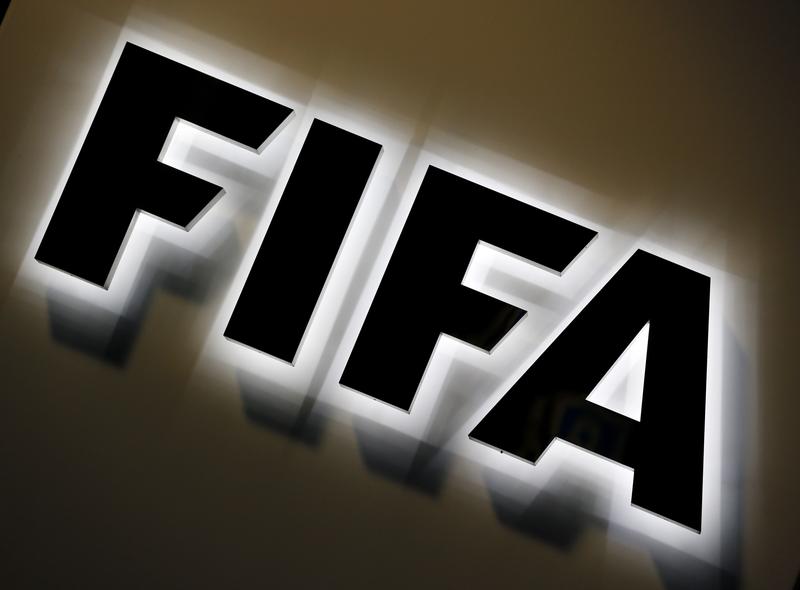 This Sept 25, 2015 file photo shows the FIFA logo outside FIFA headquarters in Zurich, Switzerland. (MICHAEL PROBST / FILE)
This Sept 25, 2015 file photo shows the FIFA logo outside FIFA headquarters in Zurich, Switzerland. (MICHAEL PROBST / FILE)
BRUSSELS - Soccer bodies UEFA and FIFA on Thursday won the backing of an adviser to Europe's top court on rules contested by potential rival the European Super League as anti-competitive in a case that could affect other sports.
The case centers on the dispute between European soccer's governing body UEFA and world equivalent FIFA and the ESL last year but could also impact other sports, clubs and players tempted by lucrative deals offered by rebel bodies and seeking to cash in during relatively short careers.
The European Super League collapsed in less than 48 hours after an outcry by fans, governments and players forced Manchester United, Liverpool, Manchester City, Chelsea, Tottenham Hotspur, Arsenal, AC Milan, Inter Milan and Atletico Madrid to pull out
At issue is whether UEFA and FIFA statutes allowing them to block rival events, bar clubs and players from taking part in the ESL or ban them from taking part in national team matches conform with EU competition rules against companies or bodies abusing their dominance.
ALSO READ: WCup: Croatia & Morocco dust themselves off for bronze
The ESL collapsed in less than 48 hours after an outcry by fans, governments and players forced Manchester United, Liverpool, Manchester City, Chelsea, Tottenham Hotspur, Arsenal, AC Milan, Inter Milan and Atletico Madrid to pull out.
That left only Real Madrid, Barcelona and Juventus as holdouts. The ESL took its case to a Spanish court which subsequently sought guidance from the Luxembourg-based Court of Justice of the European Union.
"The FIFA-UEFA rules under which any new competition is subject to prior approval are compatible with EU competition law," Advocate General Athanasios Rantos at the EU Court of Justice (CJEU), Europe's highest, said on Thursday.
While the ESL is free to set up its own independent football competition outside the UEFA and FIFA ecosystem, it cannot at the same time continue to participate in FIFA and UEFA football competitions without their prior authorisation, he said.
ALSO READ: How Messi's Argentina reached the WCup final again
Rantos said legitimate objectives related to the specific nature of sport may justify certain restrictions. The CJEU, which follows the majority of such non-binding opinions, will rule in the coming months.
UEFA welcomed the adviser's recommendation.
"The opinion reinforces the central role of federations in protecting the sport, upholding fundamental principles of sporting merit and open access across our members, as well as uniting football with shared responsibility and solidarity," it said in a statement.
FIFA also welcomed the opinion, including the adviser's recognition of the special nature of sport.
ALSO READ: FIFA to re-think 2026 format as they face spoiling winning recipe
A22 Sports Management, a company formed to sponsor and assist in the creation of the ESL, said the advocate general considered that UEFA bore a "special responsibility" to ensure third parties are not denied access to the market.
"We believe the 15 judges of the Grand Chamber, who are entrusted with the responsibility to examine this case, will go substantially further and provide the opportunity for clubs to manage their own destiny in Europe," A22 CEO Bernd Reichart said in a statement.
The case is C-333/21 European Superleague Company.


